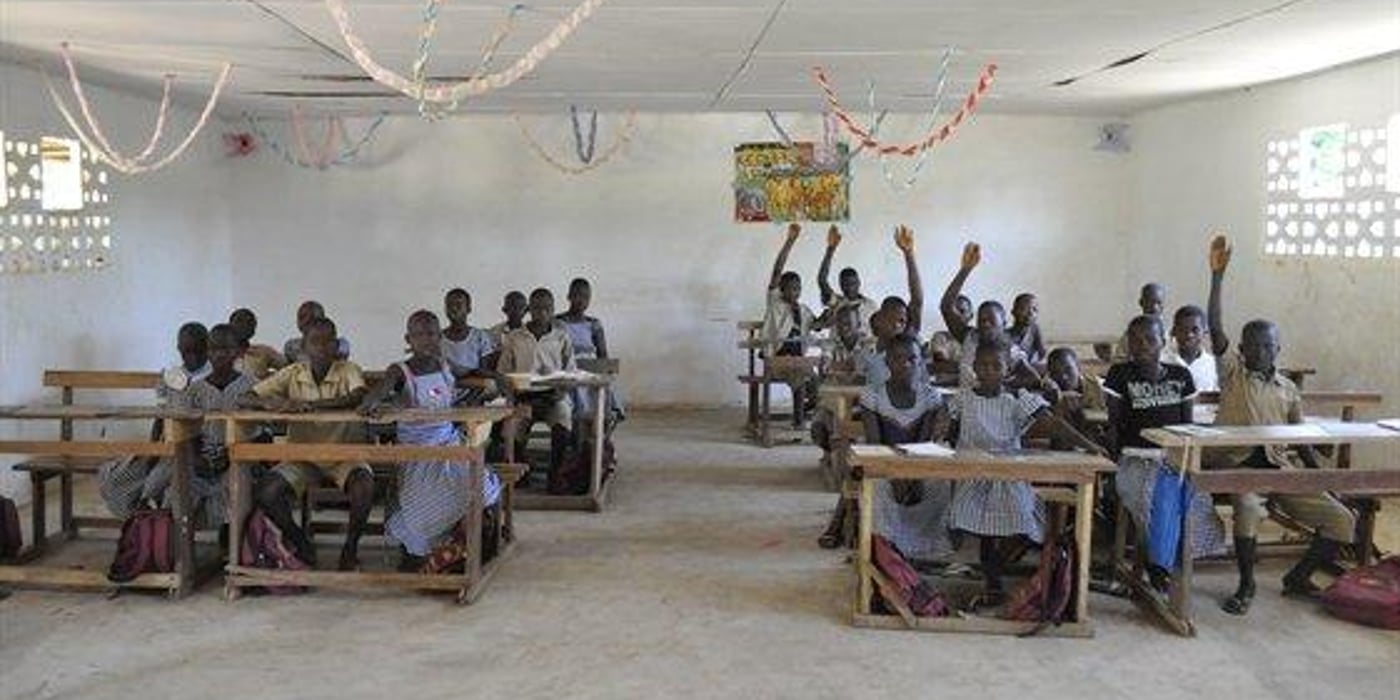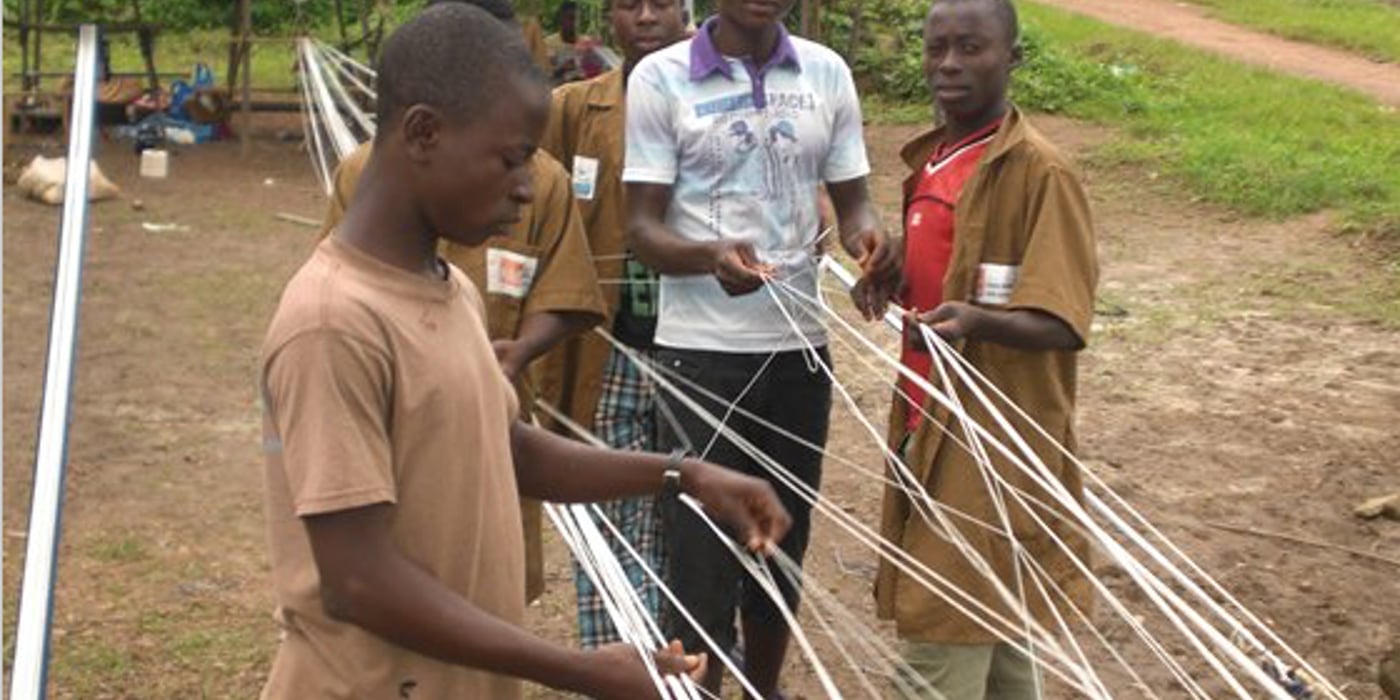
"Our programme has had a positive impact on the population of Côte d’Ivoire and our achievements make me proud,” says Cheick Ba, NRC´s Country Director in Cote d'Ivoire.
NRC has been present in Cote d'Ivoire since 2006, after various crises resulted in massive displacements in the country. At the height of the crisis, about 250,000 people were refugees in neighbouring countries.
Today, Cote d'Ivoire is once again stable and security is ensured in almost the entire country. As a result, most of the refugees have returned home. The economy is also blooming.
“More than 5 years after the post-electoral crisis, the socio-political, economic and security situation have all improved immensely,” says Marianne Irion, NRC Head of Region for Central and West Africa.
Big impact
Since the start up, more than 400,000 people have benefitted from NRC’s assistance. In 2007, activities started in Duékoué, in the West of the country, in Bouaké, in the Centre, and in the capital, Abidjan. During the first years, NRC mainly focused on Education and Civil documentation.
After the post-electoral crisis in 2010, NRC extended its activities in Duékoué and Bloléquin to include Food Security and Livelihood, Land dispute resolution, WASH and Shelter, in order to assist the internally displaced and returnees.
“We have been able to advocate for the Rights of civilians and protected the population through our different programmes,” says Cheick Ba.
He explains that the Accelerated Education programme was finally approved as an official alternative form of education by the Ministry of Education in 2015, which is a big achievement in terms of Policy. Additionally, NRC updated the Accelerated Education curriculum and guidelines, including a new pedagogical component, which received an official validation.
The creation of a local NGO
March 31st marks the last day of NRC’s presence in Cote d'Ivoire. Upon exit, NRC has facilitated the creation of a local NGO, Conseil pour l’Assistance Humanitaire et le Développement (CAHD), by former NRC national staff. The NGO will continue to cover the most prominent needs on the ground.
“It is very positive that some of our former staff will continue to work for a national NGO that springs out of the work of NRC. It will, however, be important that donors are supportive of such initiatives and fund the organisation in the future for the sustainability of its work,” says Marianne Irion.
In 2015, two international, and a total of 110 national, staff worked for NRC in the country. NRC's Country Director expresses gratitude towards the staff and praises their professionalism in the exit process.
“Despite the difficult context of closure, the team remained professional and committed to the end. They took an active part in all stages of the exit process and helped make things easier. I want to say thank you to all of them,” says Cheick Ba.
Marianne Irion shares this view: “I am impressed by the staff’s dedication and the quality of programme delivery towards the end of the implementation period. NRC should be forever grateful for this work, in addition to everyone who has been involved in the Cote d'Ivoire mission during these years”.
NRC's activities in Cote d'Ivoire:
Education programme:
- Over 27,000 children have had the opportunity to be integrated into the formal school via bridging classes.
-
Over 800 teachers trained in teaching methods.
-
More than 500 teachers have had their capacities strengthened.
In shelter programme NRC has built:
- Over 2372 houses of 3 rooms with family latrines.
-
45 rooms of primary school classes.
-
153 self-ventilated latrines.
-
40 water points equipped with hand pumps.
-
Garbage pits.
-
Promoting good hygiene practices in rural communities.
In the ICLA programme NRC has:
- Supported 60 villages in the peaceful resolution of land disputes, through building the capacity of traditional authorities and community leaders to collaborative conflict resolution.
-
Supported the establishment and operation of 60 Villages Committees of Rural Land Management, and nine Rural Land Management Committees.
-
Contributed to the extension of the 1998 Land Act 121, through awareness campaigns in collaboration with departmental and regional directorates of agriculture.
-
Advocated for the removal of obstacles to the implementation of the law on rural land.
-
Advocated for the respect of human rights and protection, during the forced eviction of the occupants of classified forests.
-
Supported the community-based women's organisations, for the promotion of women's land rights in 35 villages.
-
Encouraged community initiatives for rural land management, including rural land management protocols.
-
Rehabilitated and converted 60 hectares of community law lands.
-
Initiated the establishment of a platform for reflection on land west.
-
Initiated the development of civil documentation working group west.
-
Supported the registration of births of over 4,000 children, born during the crises of 2002 and 2011.
-
Advocated and supported the reconstruction of more than 190 birth records that were destroyed.


